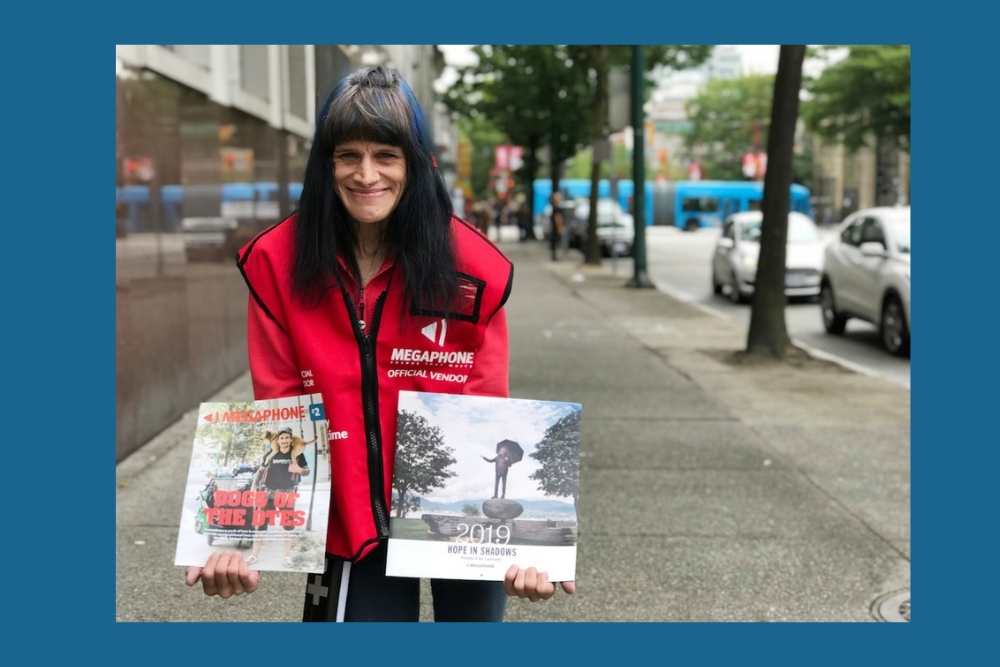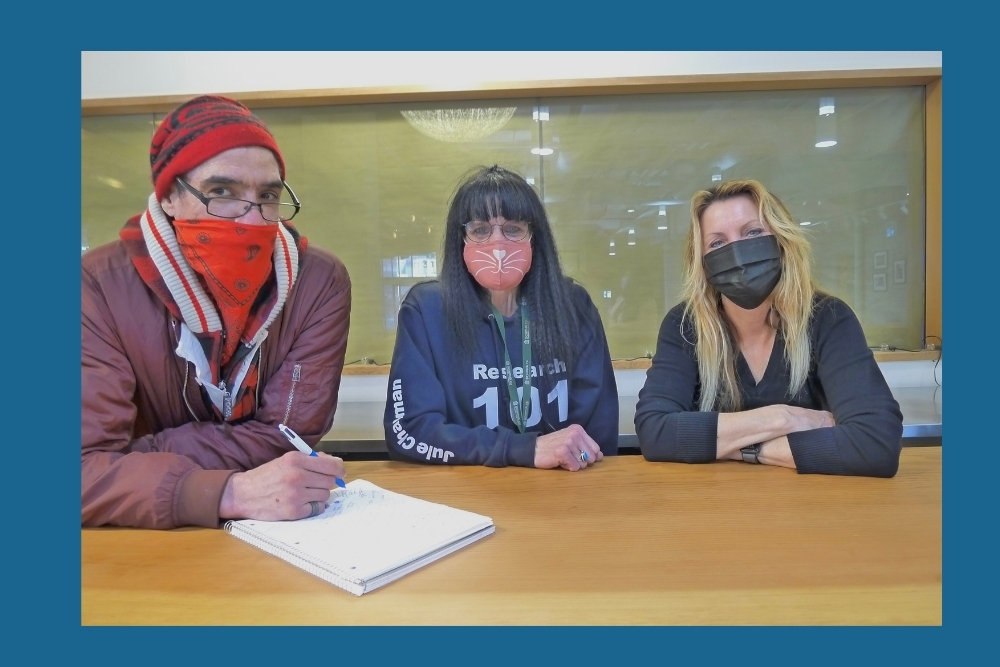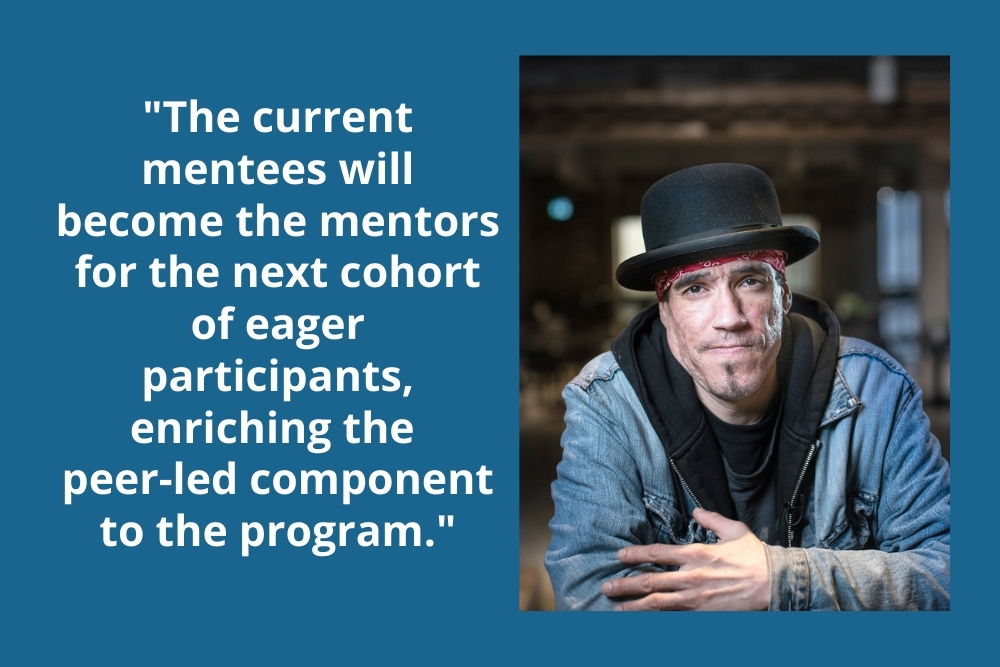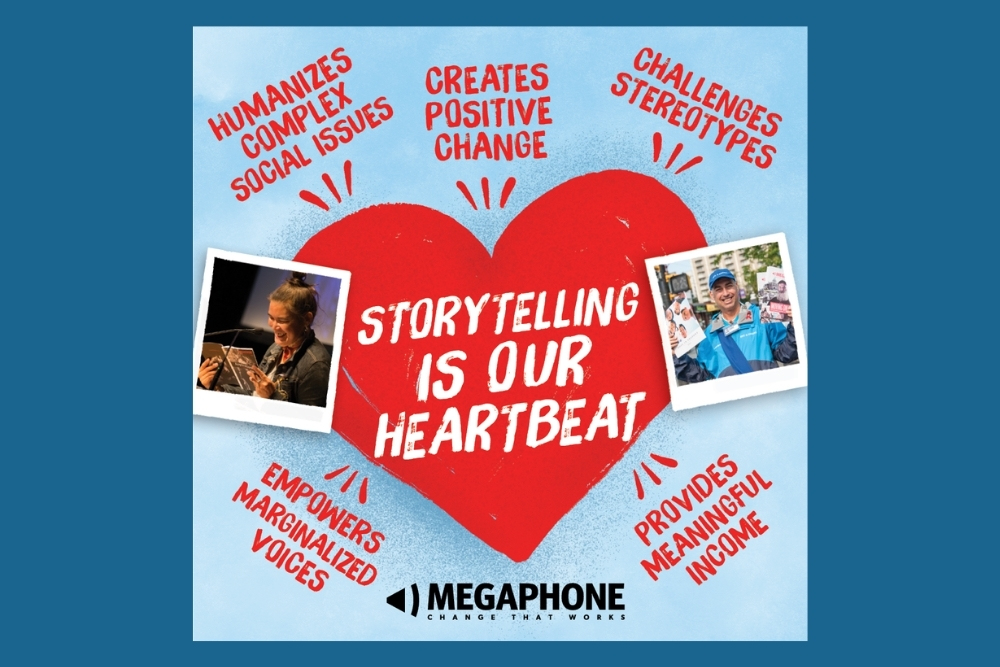At Paperblanks, we are firm believers in the importance of personal storytelling and the need to empower writers in our community. This week we want to spotlight Megaphone and the significant work they are doing by creating meaningful work for people experiencing poverty, and their new campaign Stand Up for Storytelling.

Introducing Megaphone
Based in Vancouver, Megaphone produces a monthly magazine that low-income vendors sell on the streets of Vancouver and Victoria to earn income and build community. This year, Megaphone is creating a new avenue for storytellers to have their voices heard, through their Community Journalism Mentorship program. This incentive pairs peers with professional journalists for a six-month mentorship to support them as they write on assignment for Megaphone Magazine.
We recently had the opportunity to connect with Megaphone and we’ve arranged to donate journals to support their journalism program. Read on to learn more about how you can help support this community of storytellers.
1) What was the inspiration behind creating the new Community Journalism Mentorship program?
The inspiration really came from our vendors, speakers with Speakers Bureau and other peers who contribute writing and photography to our publications. Our community wants more (compensated) peer-participation and peer-determined work, and the Community Journalism Mentorship pilot program creates a pathway for that. The first two peers involved have been vendors, published writers in our Voices of the Street anthology and speakers with our public awareness program, Speakers Bureau. They are already active advocates, artists and outreach workers and are familiar with delivering conversations that bring awareness to how we can better create safe spaces for those with lived experiences of poverty, homelessness and drug use. Our hope is that, as the program is established, the current mentees will become the mentors for the next cohort of eager participants, enriching the peer-led component to the program. We are really excited about this program! If you check out the May issue of Megaphone Magazine, you can learn more about the program and read the first assignment from Nicolas and Jules (the first two peers in the program) as they interview our Executive Director and Managing Editor about how they got involved with Megaphone.

2) What do you think will be the greatest benefit from this experience for the vendors?
Our vendor community is truly amazing. Many of them have been vendors with Megaphone for quite some time and over the years given valuable input into the direction of our publications. We really desire to see our publications be community-driven and peer-led, and this pilot program brings vendors’ self-representation even further into our publications. When vendors have a piece of their writing or photography in one of our publications, it’s empowering for them and helps them promote the product to their customers. We see vendors really benefiting from this new pilot program as it allows for supportive mentorships to nurture new learning experiences and greater income-earning opportunities as they take on community journalism assignments that may lead to other opportunities down the road.
3) The core of your campaign is that when people tell their own stories, they humanize complex issues and challenge harmful stereotypes. Can you expand on this?
Many of our peers have lived experiences of poverty and find themselves swept into dehumanizing and stigmatizing narratives the media releases. Stigma is very powerful and perpetuates the cycle of poverty as it keeps people with lived experiences of poverty, homelessness, drug use, mental illness or physical illness away from accessing their basic needs, proper healthcare, housing and work opportunities. But storytelling is a catalyst to change; they create a pathway for understanding the deep layers of complex issues with more compassion as we connect to it, finding our own story and our shared humanity.

The Community Journalism Mentorship pilot program opens the door for peers, who experience barriers to receiving education, to experience training, support and empowerment as they confront prejudice and draw people into coming to a shared understanding that everyone deserves a safe, secure and dignified life with their stories.
If you want to learn more about how you can get involved and support Megaphone’s storytelling program, please visit www.megaphonemagazine.com





